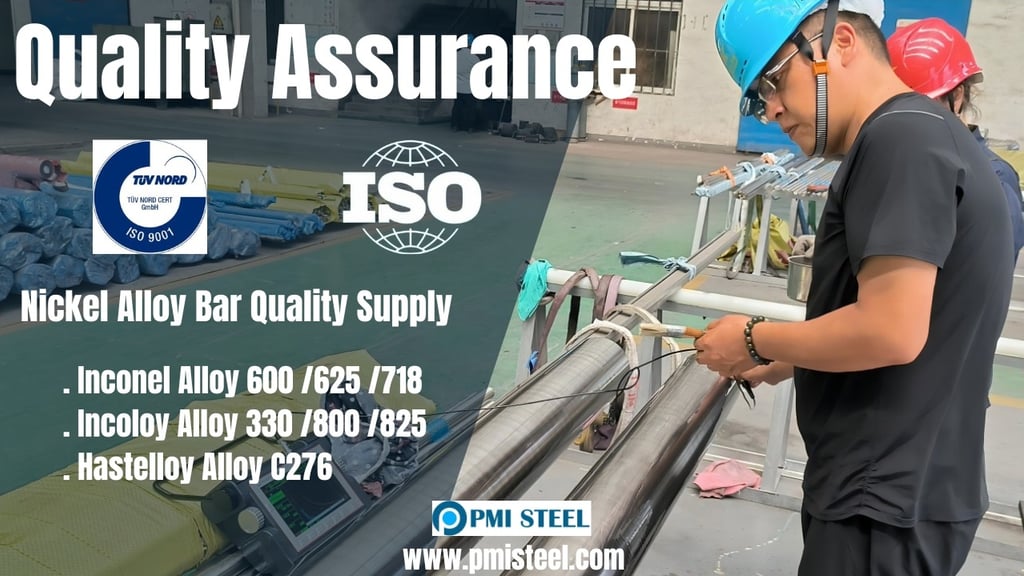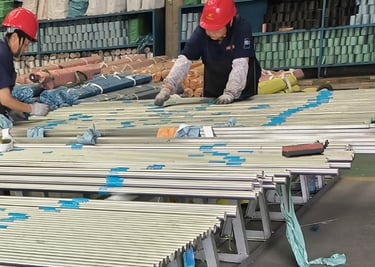EN10204 Certification: Ensuring Quality Compliance for European Market
Overview: To penetrate the European Nickel Alloy Bars market, we successfully obtained ISO 9001 & EN 10204 3.1 Certified from TUV NORD CERT Gmbh since 2021. More information, welcome to visit www.pmisteel.com EN10204 3.1 stands as the quality certification standard for steel exports to Europe. It mandates steel manufacturers to furnish a certified material test report encompassing chemical composition, mechanical properties, and non-destructive test results. Typically, such certification...
KNOW-HOWPRODUCTS NEWSINDUSTRY NEWSINDUSTRY INSIGHT
To penetrate the European Nickel Alloy Bars market, we successfully obtained ISO 9001 & EN 10204 3.1 Certified from TUV NORD CERT Gmbh since 2021.
More information, welcome to visit www.pmisteel.com
EN10204 3.1 stands as the quality certification standard for steel exports to Europe. It mandates steel manufacturers to furnish a certified material test report encompassing chemical composition, mechanical properties, and non-destructive test results. Typically, such certification is conducted by third-party entities.
When exporting to Europe, providing a test report per EN10204 3.1 standard validates the steel's quality compliance with European standards and requirements, thus ensuring product quality and safety.
There are generally two types of certificates:
a) EN10204-3.1 Certificate
b) EN10204-3.2 Certificate
EN10204-3.1 Certificate
a) Raw material manufacturers certified under ISO9001 (issued by non-EU entities) can apply for PED 4.3 certification from EU-authorized bodies. With this certification, manufacturers can issue EN10204-3.1 material certificates to their clients (termed as the factory certification mode).
b) Raw material manufacturers can directly issue EN10204-3.1 certificates if they acquire ISO9001 quality management system certification or PED 4.3 certification from EU-based notified bodies.
c) If a raw material manufacturer hasn't obtained ISO9001 certification or if the certifying body is not an EU-accredited entity, the factory cannot issue EN10204-3.1 certificates. In such cases, they must seek EN10204-3.2 certificates from third-party certification bodies.
d) EN10204-3.1 certificates must reflect the manufacturer's customer name.
EN10204-3.2 Certificate
a) The issuing authority for EN10204-3.2 must be an EU-authorized body. They issue certificates after testing the materials purchased by the buyer as per contractual requirements, affirming compliance with procurement orders. This certification serves as a third-party assertion of product inspection results matching procurement specifications.
b) EN10204-3.2 certificates serve to validate conformity with European material standards, typically required for large-scale exports such as machinery and pressure equipment, ensuring the materials used comply with European specifications.
c) EN10204-3.2 certificates are applicable to both metallic and non-metallic materials, including steel, welded components, forgings, castings, semi-finished metal products, and PP pipes.
d) Certificates must include the client's and material manufacturer's names.
EN10204 3.1 and EN 10204 3.2 certificates are not limited to metallic products; non-metallic products like rubber and resin-based items can also apply for these certifications. Additionally, enterprises manufacturing rubber sealing rings can pursue PED 4.3 system certification.
For further information on superalloys and their applications, interested individuals are encouraged to visit the website www.pmisteel.com or contact the Sales team at sales@pmisteel.com.
PMI INDUSTRY, a professional global supplier based in China specializing in nickel alloy bars.






